An internationally acclaimed opera and concert singer, Mattiwilda Dobbs has a voice often compared to the clear and resonant sound of a bell and she is known for warm, intimate performances. Only two Blacks sang at the Metropolitan Opera before her, and, appearing in Rigoletto in 1956, she was the first Black to perform a romantic lead on that stage.
Dobbs as the Queen of Shemakha in Le Coq d’Or at Covent Garden, 1954
An Atlanta, Georgia, native, Dobbs was born and raised in the Jim Crow south. Her father, John Dobbs, a railroad postal clerk, was determined that his children should receive a well-rounded education; because the Atlanta public library did not lend books to Blacks, he borrowed books from other libraries on his postal route for his six daughters to read. He also insisted that each of his children study music. Because of his commitment to her early musical training, Dobbs has credited her father with her success as a singer. John Dobbs played a significant role in shaping the future of his community when, in 1935, he founded the Georgia Voters League and began the fight to register southern Black voters. He helped to lay the groundwork for future civil rights activists.
While training with some of the opera world’s most prominent and rigorous voice instructors, Dobbs earned a number of important scholarships, allowing her to travel to Europe to continue her studies. Among these was the Marian Anderson Scholarship, named in honor of the groundbreaking Black singer. Dobbs was one of the first people to receive this prestigious award. Years later, when President Jimmy Carter awarded Anderson the Congressional Gold Medal, Dobbs, by then a world-class opera star, performed at the ceremony in Anderson’s honor.
During the course of her career, Dobbs has received decorations and awards from the international opera community. She won acclaim all over the world—from Israel to Ireland, Scandinavia to New Zealand—in part because of her personal connection to her audiences. For a performance in the Soviet Union, Dobbs learned a song in Russian; when she performed in the United States, she often included adaptations of old Negro spirituals, Creole slave songs, and works of contemporary American composers. When she sang at the Municipal Auditorium in her hometown of Atlanta in 1963, she performed for one of the city’s first un-segregated audiences. And when her nephew, Maynard Jackson, became that city’s first Black mayor, she sang at his inauguration.
Dobbs was one of Carl Van Vechten’s favorite opera performers. “Mattiwilda was glorious,” he wrote of her debut opera at the Met, “a warm and brilliant coloratura and the best Gilda in my experience and I have heard Nellie Melba, Emma Eames, and Bessie Abott, to say nothing of the current Hilde Gueden who always leaves me cold as a sardine in the icebox.”
Portrait by Carl Van Vechten
If Dobbs has not received the popular attention her voice and accomplishments deserve, it is likely that she has been overlooked only because of the abundance of fine singers who were her contemporaries. “Sandwiched between the debuts of Marian Anderson and Leontyne Price, momentous and sensational respectively, Dobbs’s bow at the house in 1956 was greeted warmly but inevitably overshadowed,” Opera News critic Ira Siff has said. “The impact was perhaps reduced even more by the advent of the big-voiced coloratura, personified by Maria Callas (who arrived at the Met a few weeks before Dobbs) and later by Joan Sutherland.” Still, Dobbs is often celebrated for what Paul Hume has called the “singular purity and radiant texture” of her voice.
In 1974, after retiring from the stage, Dobbs began a teaching career at the University of Texas, where she was the first Black artist on the faculty. She spent the 1974-75 school year as artist-in-residence at Spelman College, giving recitals and teaching master classes. In 1979 Spelman awarded honorary doctorates to both Dobbs and Marian Anderson.
Dobbs continued her teaching career as professor of voice at Howard University, in Washington, D.C. She served on the board of the Metropolitan Opera and on the National Endowment of the Arts Solo Recital Panel. Dobbs continued to give recitals until as late as 1990 before retiring to Arlington, Virginia, where she currently resides.
Sources: Wikipedia and Opera News


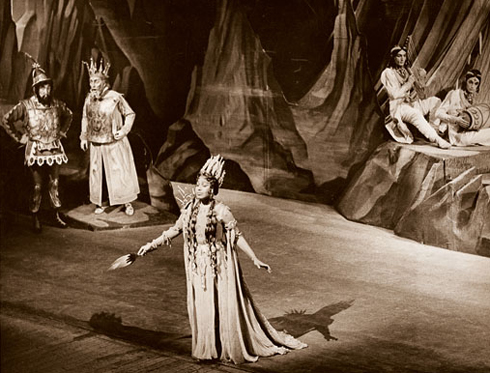
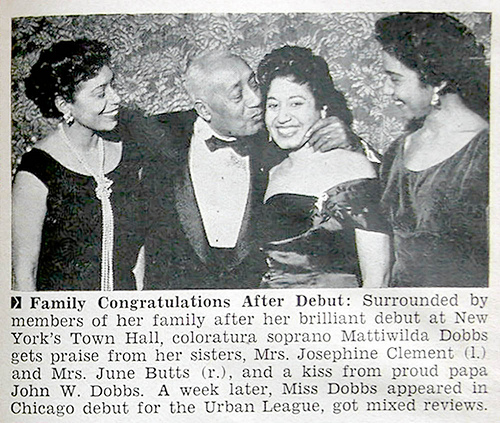
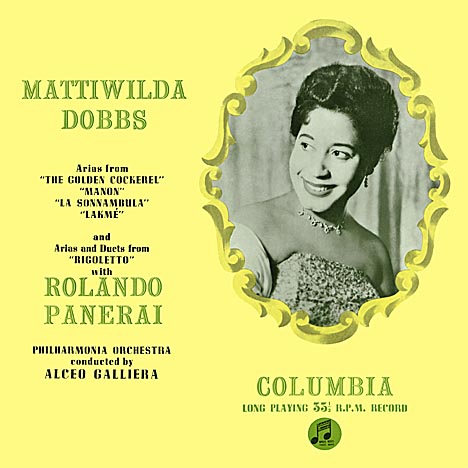
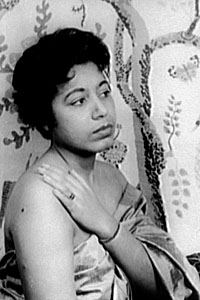


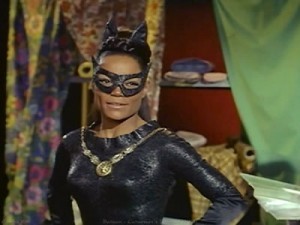

1 Comment
Actually surprised you did not include the other sistas who have performed at the Met. How about Kathleen Battle? She performed at the MET with the New York Symphony.